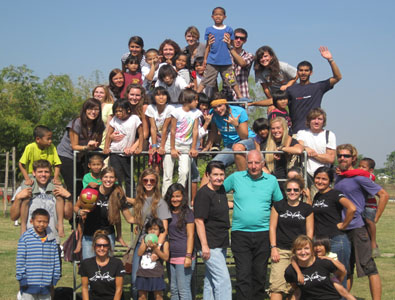In recent months I've been signing-off my emails with "for
those who have no voice". I have a
passion to speak out for the over 30 million men, women and children around the
world who live in slavery. However, I
have gained some new insights this week into what it really means to "have no voice."
Last
Friday I realized I my throat was a little sore, but I had a busy weekend and put it out of my mind. When my last Awareness Event was done on
Sunday afternoon, and I was relaxing and debriefing with my daughter, I began
to realize just HOW sore my throat had become.
I began to have a raspy voice, and by the time I arrived home late that
evening, my voice was totally gone.
Today it is 4 days later - and I still have no voice! My enforced
silence has given me opportunity to do some thinking about what having "no
voice" means for those living in slavery.
- · It means physical pain. My sore throat is nothing compared to the physical pain endured by those living in slavery: They are controlled by extreme violence. Women and children trapped in sex slavery experience rape, beatings, and torture on a regular basis. They are exposed to horrible diseases; many suffer from STDs and HIV.
- · It means frustration. There is nothing more frustrating than having something to say, and not being able to speak. Slaves cannot express their feelings due to fear and intimidation. They may fear for their life; or for the welfare of their family.
- · It means isolation. When one cannot speak, they are on the sidelines of most conversations.Most slaves suffer alone in their pain and fear. Enslaved children are often taken away from their families. Even if living in a group, there is no corporate sharing of grief--each one is engulfed in their own suffering.
- · It means hopelessness. During these days of having no voice, I often thought, "What if I can never speak again?" Those who are enslaved have no hope. They see no way out. They know of no other options to earn a living. Suicide is rampant among all those living in slavery.
This
experience of not having a voice has caused me to be motivated to not only speak
for those who cannot speak for themselves, but to want to give the enslaved an opportunity
to speak for themselves. I want the
enslaved to have their own
voice! I want girls and women-at-risk to
know that they have a voice, and learn how to use it.
How
thankful I am that I have the opportunity to partner with organizations who
offer freedom to girls and women rescued from sex slavery. With their new-found freedom, these women are
given the most precious gift of hope.
They are given hope for health, self -worth, new relationships, and a bright
future. And most of all, their own
voice--to speak truth and to be heard.
